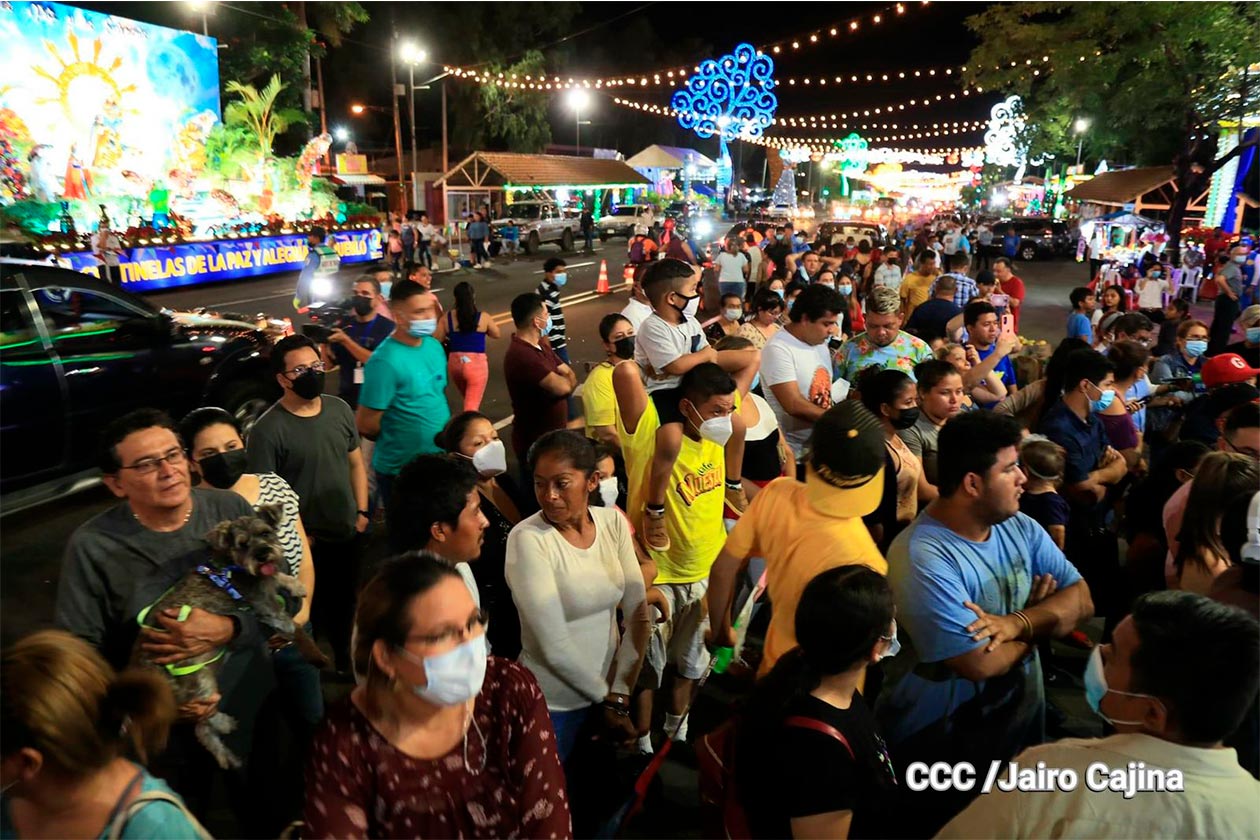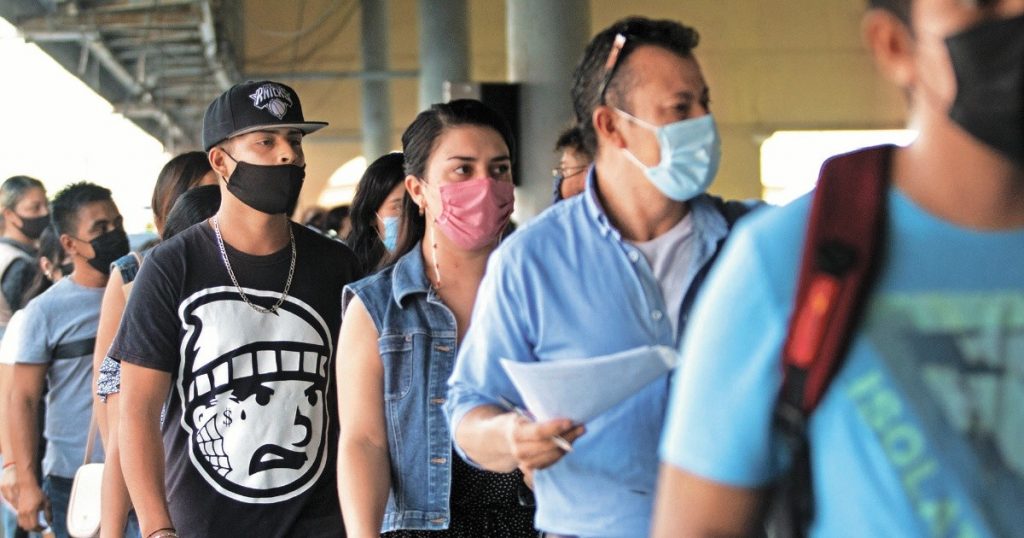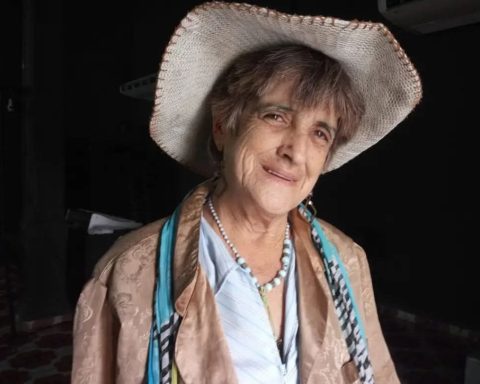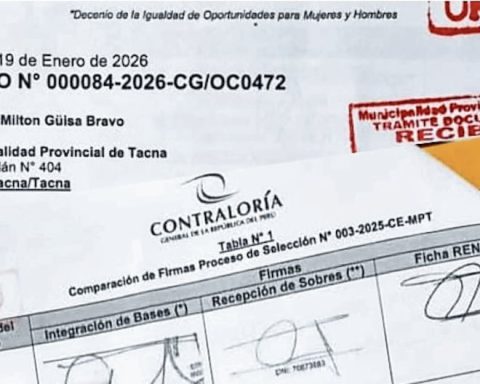Nicaraguan doctors warned that citizens are at risk of suffering a new outbreak of covid-19, after the end of the year celebrations, if prevention measures are not strengthened, mainly social distancing, hand washing and use of a mask . A third wave or regrowth would be mainly due to the circulation of the variants of concern that increase the transmissibility of SAR-CoV-2.
“To the extent that we relax protection, there is a greater probability of having new infections and a new outbreak, especially now that the end of the year holidays are coming; then it is very likely that some people relax thinking that with the previous regrowth (in September) the situation was resolved and they can no longer be infected again. And it is not true ”, explained an infectious disease doctor.
Statistics on the pandemic in Nicaragua reveal that, two to three weeks after festive events in the country such as Easter holidays, La Purísima, Christmas, regional holidays, spikes in infections and deaths from covid-19 emerge. However, these could now be higher considering that variants of the original virus circulate.
“Countries that have had up to six waves explain that this occurs as a result of the reduction or relaxation of prevention measures, since they observe that the cases decrease and mistakenly think that the virus has already left, or because they are vaccinated and they do not know that they are not fully protected, less with the delta variant that has demonstrated its ability to avoid the antibodies produced by the vaccine, “said epidemiologist Leonel Argüello.
The risk also increases with the appearance of the omicron strain, identified on November 24 in South Africa, which presents several mutations that make it more contagious than the other variants. It already circulates in four countries on the continent: Canada, the United States, Brazil and Mexico.
Fewer cases are reported, but virus continues to circulate
Although the Ministry of Health (Minsa) reports fewer cases of covid-19 compared to those identified during the second wave of covid-19, which occurred between July and October 2021, the number of weekly infections still exceeds the trend of 50 new infections that were reported after the wave of 2020. Likewise, the doctors explained, the decrease in infections is consistent with the behavior of the virus and that is why the population should not be trusted.
“In countries where a transparent record of the number of cases and deaths is kept, it is observed that the waves of the epidemic last approximately two months and then the cases decrease, which is explained because the virus, although it continues to circulate, does not find as many people that is not infected. However, fewer cases continue to occur and the cycle repeats with a new wave, ”explained Argüello.
Another doctor who asked not to be named for fear of government retaliation said he has seen a slight increase in outpatients. “That worries me because another outbreak could take off and more because of the high probability that we have a regrowth at the end of the year or early 2022.”
In Nicaragua, an under-registration of infections and deaths from covid-19 predominates, mainly because the Health authorities do not carry out massive tests that allow the identification of new infections and contain community transmission. The current government also hides the real impact of the variants of concern that are already circulating.
“It is easy to realize that in Nicaragua exposure to the virus is greater than in other countries because community contagion is promoted here, therefore it is easy to predict a third wave if prevention measures are not taken,” warned Dr. Argüello.
Vaccination does not guarantee a decrease in cases
Although Nicaragua is increasing its vaccination coverage —34.5% of the population completed their inoculation schedule and 60% received their first dose— prevention measures should be continued because the percentage is still low and people are not exempt from get sick again.
“If we already had a high rate of infections in the country, it is possible that reinfections will occur. There are some studies that indicate that 1% of the population can be reinfected, as well as others that the percentage is much higher, especially with the appearance of new variants“Stressed the infectious disease doctor.
“We have already seen what is happening in Europe, for example, in England they began to vaccinate the adult population very early and many of them have already been losing their immunity, but, of course, never the same as those who are not vaccinated, “he added.
In Nicaragua, the Minsa already applies booster doses to citizens who were vaccinated with Covishield and Sputnik V before last August. Likewise, vaccination days are held house to house. However, the authorities continue to promote agglomerations without any kind of measures. As announced by the vice president Rosario Murillo, this weekend there will be more than 4900 activities nationwide.
According to the latest Minsa report on covid-19, in 20 months of the pandemic, 17 652 positive infections of covid-19 and of these 212 died. However, the Citizen Observatory, which carries out independent monitoring due to the opacity of official data, points out that at least 31,222 serious cases and 5,947 deaths have occurred in the country.


















